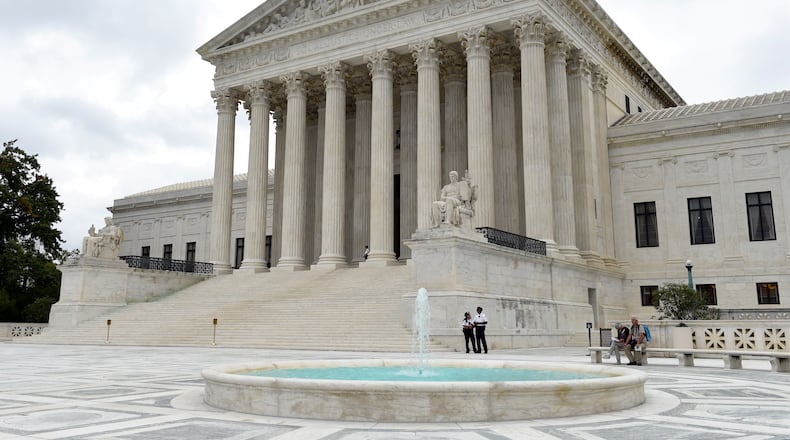WASHINGTON -- A divided Supreme Court on Thursday nixed Barack Obama's immigration plan, killing the president's ambitious second-term effort to shield millions of undocumented people from deportation.
Our colleague Jeremy Redmon has this take:
The court issued only a one-page decision Thursday morning that says: "The judgment is affirmed by an equally divided Court."
Georgia was one of 26 Republican-dominated states led by Texas that challenged the executive actions, which Obama announced soon after the midterm elections in November 2014. Attorney General Sam Olens quickly trumpeted the ruling in a statement.
“The Supreme Court’s action today leaves in place a decision affirming that President Obama cannot evade the Constitution," said Olens. "Our nation’s laws, the separation of powers between the executive and legislative branches, and the Constitution, must be followed.”
GOP lawmakers on Capitol Hill were quick to laud the ruling.
"The Constitution is clear: The president is not permitted to write laws — only Congress is. This is another major victory in our fight to restore the separation of powers," Speaker Paul Ryan, R-Wis., said in a statement.
Democrats said the ruling underscores the need for Congress to fill the seat that's been left vacant since Scalia's death in February.
"Today’s decision shows the terrible human cost of Senate Republicans’ reckless refusal to fill the vacancy on the Supreme Court created by Justice Scalia’s death," said Dick Durbin of Illinois, the Senate's No. 2 Democrat. "The Court’s failure to resolve the legal challenge to DAPA and expanded DACA leaves millions of families in indefinite limbo,” he added, referring to two immigration laws Obama's executive actions sought to expand.
Richard Trumka, president of the AFL-CIO, called the ruling "a setback for all those who have fought for more humane and rational enforcement of our nation's immigration laws."
"While we are deeply disappointed by the Court's failure to reach a decision, we will redouble our organizing efforts to defeat the obstructionist, anti-immigrant forces behind this lawsuit and ensure that all working people can assert their rights on the job and in the community without fear of deportation," Trumka said.
About the Author
The Latest
Featured




